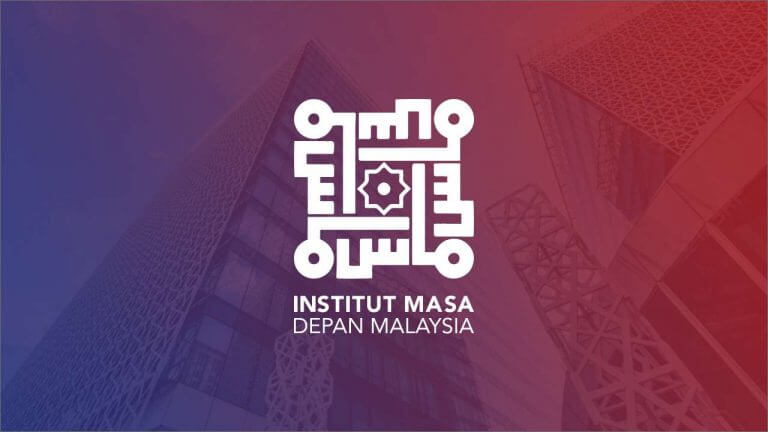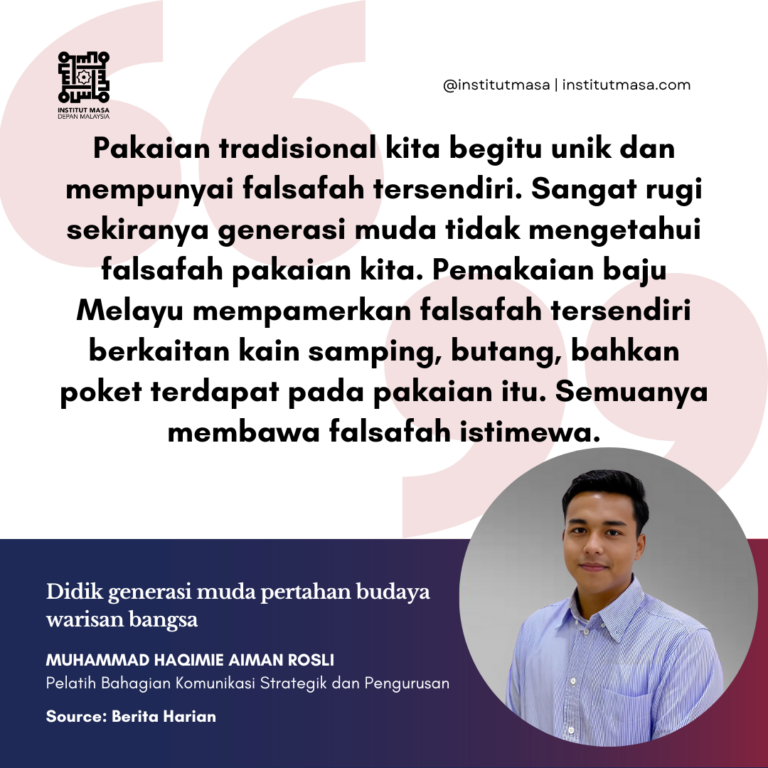MEDIA STATEMENT
MASA IN CONJUNCTION WITH TEACHER’S DAY CELEBRATION
15th MAY 2024
INSTITUT Masa Depan Malaysia (MASA) has always emphasised the importance of proactive and continuous measures to enhance the duties and roles of each and every teacher to drive the transformation of the education sector, while preparing a quality and skilled human capital for our future generation.
The role of teachers in utilising the digital space in the teaching and learning process has become increasingly important. This is in line with Anjakan 7 of the Malaysian Education Development Plan (PPPM) 2013-2025 which calls for the use of information and communication technology (ICT) to improve the quality of learning in Malaysia.
Digital education is, undoubtedly, one of the main drivers for Malaysia’s economic development. Mastery in digital skills, therefore, is pertinent in this era of Industrial Revolution 4.0 and technology-based teaching and learning processes.
However, all these agendas towards digital development will remain mere rhetoric if the digital divide is still widespread.
The findings of the Teacher’s Digital Competency Level study reported in the Digital Education Policy 2023 document show that only 2.2 per cent of teachers are at an advance level, 39.9 per cent intermediary and the remaining still at the basic level.
It also reveals the still below-average availability of computer equipment, digital devices, software and school broadband services in our schools and higher learning institutions. For years, students who live in areas with unstable or limited broadband coverage in remote or outlying areas, have always been the main challenge in digitalisation of education in Malaysia.
Hence, the problem of digital poverty needs to be addressed first if digital education is to be an integral part of our education system.
MASA is also concerned with the findings of the World Bank’s report which highlighted the limited level of digital preparedness and expertise of teachers. The Ministry of Education (KPM) should take the World Bank’s report on the matter seriously as an opportunity to further improve services and digital infrastructure in schools, especially in rural areas.
It should also prioritise the importance of introducing more ICT-related capacity development programs for teachers, students and school administrators. Focus must be placed on providing technology as tech-based learning and teaching has the capacity to improve critical thinking, learning experience as well as academic performance.
By integrating technology into school curriculum, for instance, education practices will be improved and teachers will be able to expound upon the textbooks and prepare more authentic and student-centred classroom learning materials. All these will create more opportunities for students’ academic development and growth.
The Digital Education Policy, introduced by the ministry last year and will be in effect until 2030, is a timely necessity but it can only achieve its aim with proper infrastructure in place and issues related to digital poverty among the populace are resolved. The digitalisation of education is crucial but without the infrastructure, hardware and all, such a policy will be rendered ineffective.
The policy presents an opportunity for both students and teachers to acquire knowledge but without the prerequisites fulfilled, it will only look good on paper. The ministry must prepare the infrastructure first for the ideals of the policy to come to fruition.
In line with MASA’s deep commitment for the Shared Prosperity Vision 2030 (WKB2030) agenda and PPPM 2013-2025, we urge the government, KPM and other relevant ministries to intensify efforts and initiatives to steer reform and transformation of the country’s digital education.
Happy Teacher’s Day!
AZRIL MOHD AMIN
MASA Chief Executive Officer




